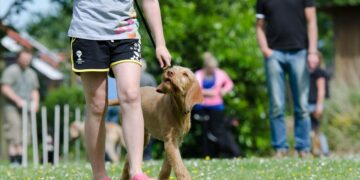Essential Dog Tips for New Owners: A Guide to a Happy, Healthy Pet
Welcome to the world of pet ownership! If you’re new to having a dog, you probably have a mix of excitement and anxiety about ensuring your new furry friend is both happy and healthy. Fret not, as we dive into some essential tips and advice designed to assist new dog owners in navigating this exciting journey.
Understanding Your Dog’s Needs
Dogs, much like humans, have basic needs that require fulfillment for a good quality of life. Below, we explore the key areas you need to focus on:
Proper Nutrition
Feeding your dog isn’t just about buying dog food in bulk and hoping for the best. The age, breed, and health of your pet determine the type of nutrition he or she needs. Start by selecting high-quality dog food, acknowledged by veterinarians for its nutritious content. Remember, feeding guidelines provided on food packaging are just a starting point; adjustments might be needed based on your dog’s health and activity level.
Regular Exercise
All dogs need exercise, but the intensity and duration will vary. A working breed, for example, requires more robust and frequent exercise compared to a smaller, less active breed. Regular walks, playtime in the park, and active games at home can help keep your dog physically fit and mentally stimulated.
Healthcare
Veterinary visits should become a part of your routine. Early on, vaccinations and routine check-ups are crucial in preventing various diseases. Additionally, regular dental checkups and grooming (nail trims, haircuts) will keep your dog comfortable and potentially ward off future health issues.
Creating a Dog-Friendly Environment
Adjusting your home environment can make a significant difference in how quickly your dog adapts and thrives:
Safe Space
Just like people, dogs appreciate having a space they can call their own. Set up a comfortable bed or crate in a quiet corner of the house where they can retreat when needed. This space provides them with security, especially when they feel overwhelmed or tired.
Secure Your Home
Puppy-proofing your home is akin to child-proofing. Check your home for potential hazards like toxic plants, accessible trash bins, or small objects that can be swallowed. Ensure windows, gates, and fences are secure to prevent any adventurous escape attempts.
Proper Training Tools
Investing in good quality leashes, collars, and training aids like clickers or treat bags can help greatly in the training process. Good tools not only make training easier but also ensure the safety and well-being of both pet and owner during training sessions.
Training and Socialization
Training your dog and ensuring adequate socialization from an early age is imperative to your dog’s behavior and adaptability:
Basic Commands
Teaching your dog basic commands such as sit, stay, come, and down is crucial. These commands not only help in managing your dog’s behavior but can also protect them from harmful situations.
Social Skills
Exposing your dog to different people, dogs, and environments can enhance their confidence and reduce fear and aggression. Puppy classes are a great way to start, and they provide a social setting that is controlled and safe.
Consistency is Key
Consistency in training methods and commands helps your dog learn faster. This means that all family members should use the same commands and rewards to avoid confusing your pet.
Meeting Emotional Needs
Dogs are highly social animals with emotional needs that must be met:
Companionship
Dogs were bred for companionship, which means they generally do not like being alone. Spend quality time each day playing, walking, or simply relaxing together. This strengthens the bond between you and your pet.
Stimulation
Mental stimulation is just as important as physical exercise. Toys, puzzles, and regular training sessions can provide necessary mental stimulation. Bored dogs are more likely to develop destructive behaviors.
Recognize Signs of Stress or Anxiety
Learn to identify signs of stress or anxiety in your dog. Common indicators can be excessive barking, chewing, or aggression. Address these issues early with the help of a professional if needed.
Conclusion: A Lifetime of Friendship
Bringing a dog into your home is not just about responsibility; it’s about forming a lifelong bond. By understanding and meeting your dog’s needs, you provide a foundation for a healthy, happy, and rewarding relationship. Dogs offer unconditional love and companionship, and in return, they depend on us for their well-being. Rise to the occasion, and you’ll enjoy the profound benefits of pet ownership for many years to come.
Start this journey well-equipped with the knowledge and tools needed to provide the best care for your canine companion. Happy pet parenting!














































